- AF Weekly
- Posts
- Thailand’s most powerful man, on the run?
Thailand’s most powerful man, on the run?
Thailand has been consumed by political chaos once again this week with the country’s once most influential man now seemingly on the run. Caught in the middle of his decades-long theatrics is a dwindling economy
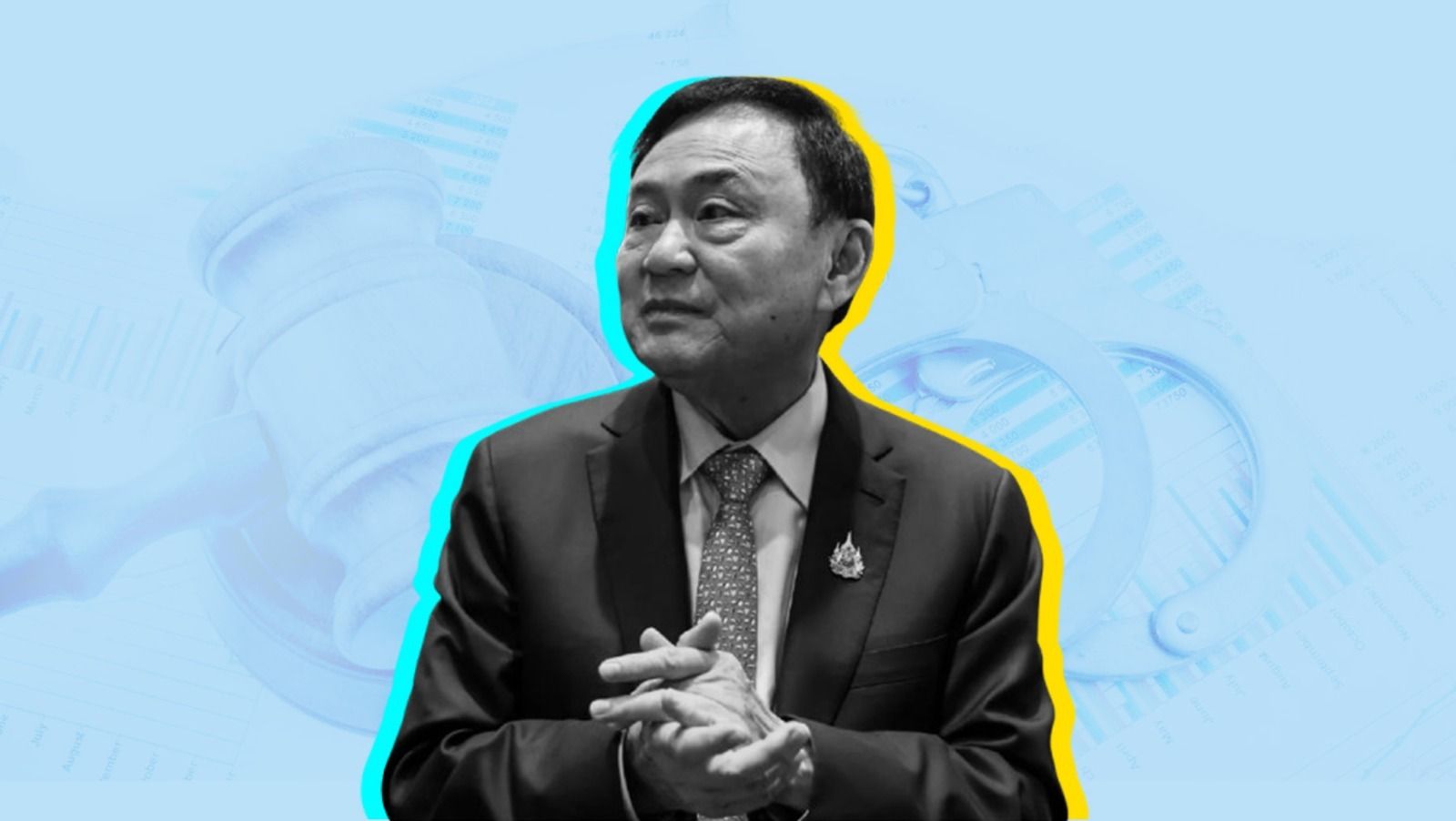
Graphic by Aarushi Agrawal for Asia Financial
After a whirlwind evening during which he nearly got arrested, abruptly fled his country, briefly went ‘missing’ and left hundreds of Thai social media sleuths searching for his private jet, Thailand’s former prime minister Thaksin Shinawatra is back in Dubai.
It’s a city where he fled to long ago to avoid jail in Thailand and spent nearly 15 years in exile. And it’s suspected that he’s doing it again.
Is it true? We’ll find out soon enough.
The events of Thursday — which could be straight out of a political thriller — began late in the evening with a report that Thaksin had been detained by officials at one Bangkok airport as they wanted to check if he had permission to leave the country. Shortly after, news emerged that he was permitted to fly in his personal jet to Singapore, allegedly for a medical appointment. But an hour later, his plane changed course mid-flight and headed instead to Dubai.
On Friday, Thaksin said the delay in Bangkok meant his jet could not get to Singapore’s small airport for private planes before it closed, so they had to head to Dubai instead.
This latest drama comes as no surprise, given the Shinawatras have had a habit of leaving Thailand to avoid jail.
Thaksin has been the subject of repeated probes for corruption and irregular financial disclosures. He enjoyed a good start after becoming Thailand’s prime minister in January 2001, thanks to a hugely popular system of cheap healthcare and other clever policies that were boosted by booming trade with China.
A Thai-Chinese policeman from the North who became a billionaire businessman when the Thai economy saw dynamic growth in the 1990s, Thaksin, like many successful entrepreneurs, seemed to have the world at his feet. But within a few years, success appeared to go to his head.
With a large parliamentary majority, he pushed his luck, launching a ‘war on drugs’ that claimed an estimated 2,500 lives. He also began a crackdown in the far South that ballooned into a vicious insurgency and became one of the world’s most deadly conflicts over coming years. More than 7,000 people died in that insurgency over the next decade.
This crisis in southern Thailand angered Thai military leaders and some of the most influential members of the elite.
But, like US President Donald Trump, the Thai PM was business-focused. He met many times with the military generals in neighbouring Myanmar, with a focus on providing Thai backing for dams and mega-projects and concessions for phone, internet and satellite infrastructure. But he failed to stop their outrageous repression of ethnic groups like the Karen and Shan, who had to seek refuge in Thailand, or stop ethnic groups that were flooding the region with methamphetamine.
Meanwhile, Thaksin’s family grew wealthier during his five and a half years in office. His governments were plagued by tales of suspect deals and benefits. For a country with huge wealth inequality, his CEO-style leadership and ‘vote-buying’ schemes became a problem.
The elite and Thai courts began to push back. The military staged a bloodless coup in September 2006, while Thaksin was abroad. And that began an eight-year cycle of military interventions and courts removing leaders of proxy parties run by Shinawatra’s colleagues and family members.
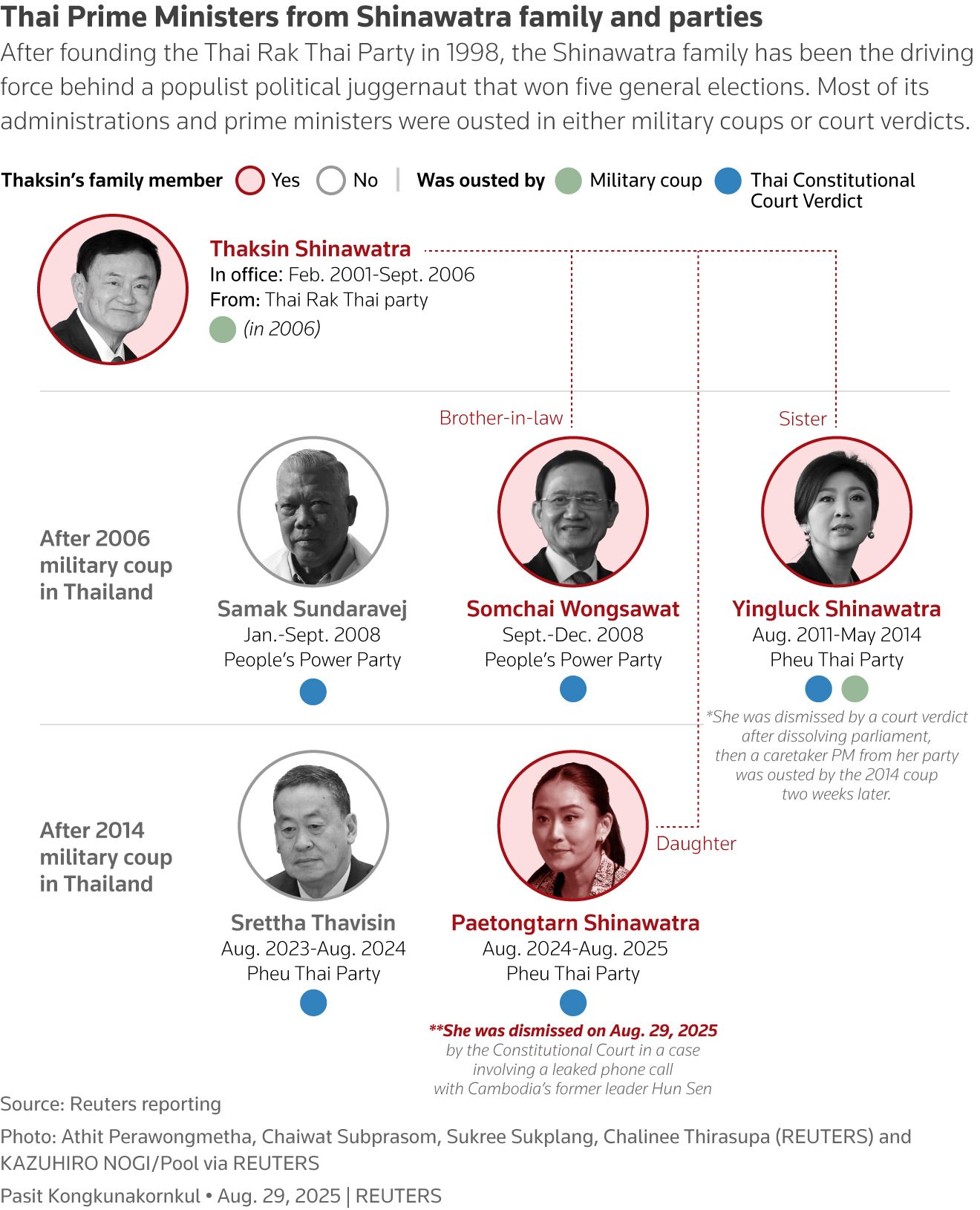
In early 2010, an anti-corruption panel convinced a court to confiscate $1.4 billion of Thaksin’s money, allegedly earned from state concessions rigged in his favour. That opened the door to chaos – two months of riots and street fighting by a ‘red-shirt’ mob in Bangkok egged on by broadcasts from Thaksin, who had fled to Dubai. Close to 100 people died in those riots.
And yet, Thaksin pulled a political masterstroke in 2011 by naming his sister Yingluck as leader of his party. Pretty, pleasant and capable, she became Thailand’s first female prime minister, but was eventually removed after her party tried to sneak a highly controversial bill to grant amnesty to ‘red shirt’ protestors through parliament in the middle of the night.
The bill sparked months of protests, and Yingluck was eventually forced to flee Thailand.
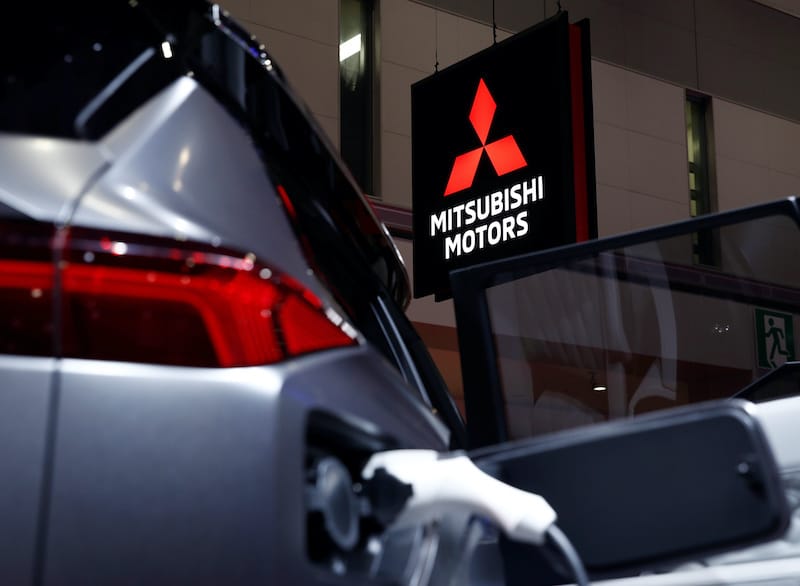 | In other news, Japanese carmakers are set to get some relief as the US has signed off on lower tariffs on their exports. That’s not necessarily good news for everyone though. |
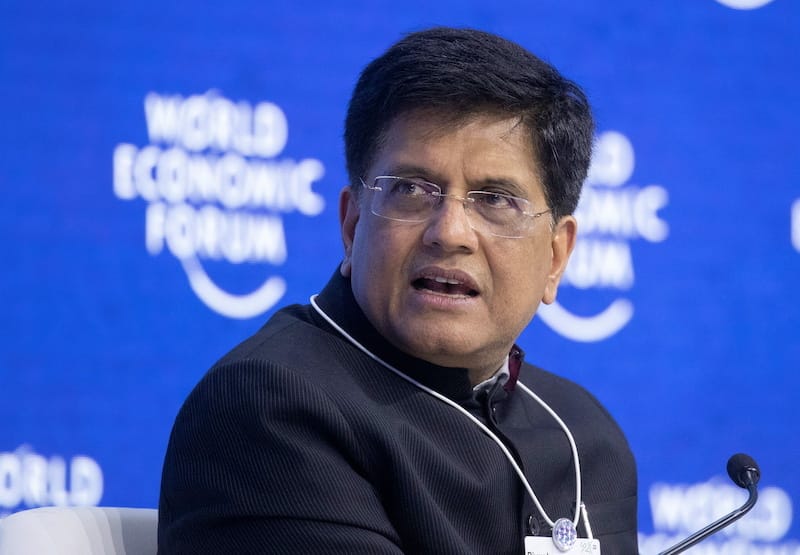 |
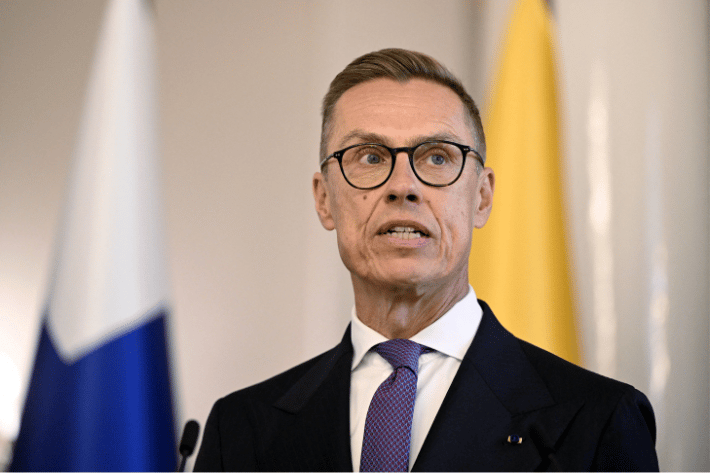 All images via Reuters | And the president of Finland has warned that the West will lose the battle for global influence if it doesn’t adopt a “more cooperative and dignified foreign policy” towards the Global South and India. |
At stake: A dwindling economy
After the political theatre of all those years, Thaksin returned to Thailand two years ago thanks to a deal with the country’s ruling party at the time. The deal allowed him a short sentence for the crimes that led him to flee to Dubai. He eventually received a one year jail term, which was commuted to six months. But he never spent a night in jail, claiming he had serious medical issues that allowed him to serve his time in a plush suite at the top of the police hospital.
Later, he orchestrated the election of his daughter Paetongtarn as premier. But she too was ousted by a court a week ago after Hun Sen – the veteran powerbroker of neighbouring Cambodia (and a former friend of Thaksin) — made an extraordinary move to reveal a tape of his conversation with her. Thailand’s youngest ever premier, Paetongtarn was seeking to end the two countries’ increasingly bitter border dispute. But the tape became a knockout blow, because her soft remarks to the Cambodian veteran and criticism of a Thai military chief sparked a furore.
Meanwhile, Thaksin now faces a ruling next week for whether he faked a serious illness to avoid jail on his return to Bangkok in August 2023. And with speculation that the political deal that allowed him to return to Thailand has collapsed, many are sceptical that the 75-year-old billionaire will come back — which he promised to do. New reports also say that while in exile, Thaksin “built a $2.5-3.5 billion shadow empire through African mines, Cambodian casinos, and offshore shell [companies]”.
But in the midst of this political chaos and alleged shady deals, the Thai economy is struggling.
The country is projected to grow by a mere 1.8% to 2.9% this year, depending on how tourist arrivals and domestic consumption recovers. It also faces other risks such as US tariffs. Thailand is also taking the lead to dismantle scam centres along its borders which have swindled people across the globe for billions of dollars and become a hub for human trafficking. The country has also recently seen intense border clashes during a five-day war with Cambodia in late July.
To Thailand’s benefit, though, its Parliament on Friday gave a decisive vote to Anutin Charnvirakul, the leader of Thaksin’s chief rival, the Bhumjaithai Party. Anutin, who previously served as deputy prime minister, interior minister and health minister, is perhaps most famous for delivering on a promise to legalise cannabis in 2022.
Charnvirakul currently leads a coalition, and has reportedly vowed to hold a new election in four months’ time.
Key Numbers 💣️
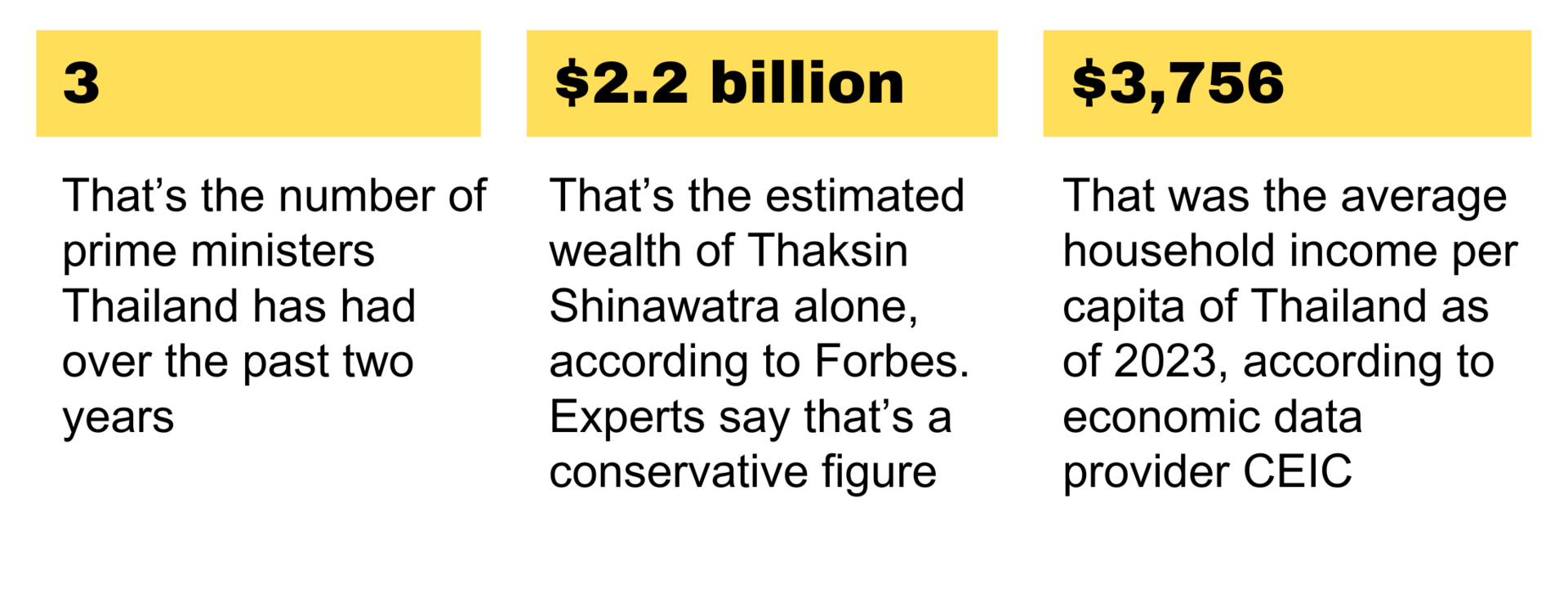
Sustain-It 🌿
On to some green news, this week, India approved key tax cuts on solar and wind equipment — a move which, experts say, will lower costs for new plants and, in turn, help accelerate the country’s shift to renewable energy. India is Asia’s second-largest renewable energy market after China and has produced record levels of clean energy over the first half of this year. In June, clean power sources accounted for 31% of India’s overall power generation mix, which was the highest reading on record for that month. It also meant the share from fossil fuel sources dropped below 70% for the first time.
The Big Quote
“People come and go, maybe it's time for the Shinawatra family to finish their roles in the politics of Thailand”
Also On Our Radar
US officials in southern Africa have been ordered to keep away from the Kafue River in Zambia, where a toxic waste spill from a Chinese-run copper mine is threatening serious health problems.
China’s top technology companies are still keen on buying Nvidia processors despite pushback from Beijing against their purchases, as domestic manufacturers like Huawei struggle to meet demand.
The US has revoked Biden-era waivers granted to Taiwan’s TSMC, which allowed the chipmaker to ship critical chipmaking tools to its main China facility.
And, early this week, Indian Prime Minister Narendra Modi was seen laughing, hugging and shaking hands with Chinese President Xi Jinping and Russian President Vladimir Putin, amid calls for a ‘Global South-led world order’.